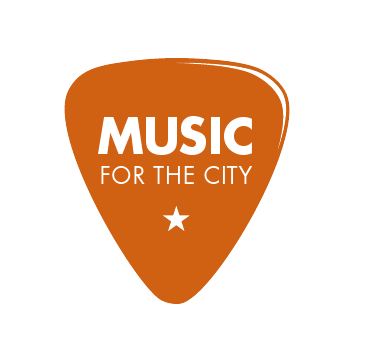 Returning home from seeing The Social Network, I did not check my Facebook. I did, however, check my Twitter. Although I have a Facebook account, I don’t use it. In fact, it just broadcasts my tweets. I’m thinking about shutting down my Facebook account, but I suppose virtual “friends” are better than virtual “followers”? If I’m going to close one down, perhaps it should be Twitter.
Returning home from seeing The Social Network, I did not check my Facebook. I did, however, check my Twitter. Although I have a Facebook account, I don’t use it. In fact, it just broadcasts my tweets. I’m thinking about shutting down my Facebook account, but I suppose virtual “friends” are better than virtual “followers”? If I’m going to close one down, perhaps it should be Twitter.
Friends or Followers?
Friends or followers? Relationships or influence, which should we choose? This is the choice Mark Zuckerberg, founder of Facebook, has to make in the film The Social Network. This cinematic installment in the first chapter of the Facebook story, traces two interweaving paths–the path of friendship and the path of virtual friendship–which begin in the dorms of Harvard University. Betraying his “one friend”, Eduardo Saverin and co-founder of Facebook, Zuckerberg chooses the latter over the former. He loses friends but gains influence. This, of course, was not a one-time decision–choosing influence over friendship. In the film, we watch Zuckerberg lose friendship (and gain influence) through a lot of little decisions along the way.
Zuckerberg’s refusal to celebrate Eduardo’s acceptance into the Phoenix Club, a prestigious Harvard fraternity, is perhaps one of the first bold indications that what matters most is his success not his friends. This is followed by continual disregard of his partner’s advice. Climbing the ladder of success, Zuckerberg eventually kicks Eduardo off, choosing a new “friend”, Napster founder Sean Parker (played remarkably well by Justin Timberlake), who will help him climb higher. This basic tension between friendship and influence stretches the distance of the film.
The Decline of True Friendship
How often do we choose influence over friendship? How often do we prefer to add a “friend” in order feel more important, more influential? How often do we disregard a friend in conversation to see what our virtual friends have to say to us or about us? This tension between true friendship and virtual friendship is real, quotidian, ubiquitous. Many of us prefer the convenience of friends we can turn off over the inconvenience of friends we can’t. We prefer the dopamine rush of a virtual friend’s text, tweet, or FB message over the sacrifice and love of investing in a real friend’s joys, hardships, and concerns.
In this age of social networking, true friendship and community are in steady decline. Conversation is increasingly superficial–an exchange of information or a piece of entertainment–but rarely do we reach the deep places where people truly feel, believe, and desire. And when we do, if feels foreign and awkward. With this decline in depth of conversation, we are not only losing deep conversation but also the ability to relate to one another on deeper levels. The threat we impose upon ourselves by opting for influence over friendship is not only losing friends but also losing the ability to make friends, real, deep, lasting ones. For example, when is the last time you asked someone not just “how was your day” or “What’s up” but how you feel about what’s up and how your day was?
In The Social Network, we observe a variety of things threatening true friendship in addition to the hunger for influence. Greed, power, selfishness, immaturity, and jealously. These very same things threaten the waning art of true friendship, every time you choose not to ask that deeper, second level question, every time you choose to compete instead of converse, every time we wait for someone else to take the “risk” of going deeper than “What’s up?”
The Ethic of Love
If anyone has the power, the rationale, to take the risk, to “plunge” one or two levels deeper, to make friends, to build community, it is Christians. This is not so because they are morally superior. Far too often, Christians are morally inferior. What Christians do possess, however, is an ethic of love. Love is not essentially affection and romance. Love is essentially denial of self in the pursuit of another, like asking a deeper question of someone who has not yet asked such a question of you. Or like denying yourself some comfort in order to provide a need or comfort for someone else. Love is like picking up someone’s children in less than 24 hours notice so that a tired couple can have some time to themselves (which happened to me tonight).
Love is like dying so others can live. Jesus Christ did all of these things and more. He showed us that God truly is love, by denying himself for the good of countless others. Yes, Christians have an ethic of love that compels friendship, community, sacrifice, and deeper truer conversation. My fear is that we are building churches of social networkers not Christians, churches that are more concerned with influence than friendship.
In an ironic twist, the closing scene of The Social Network leaves Zuckerberg, broker of 500 million friends, at a computer clicking “Refresh” over and over again in the hopes of regaining a lost friend through his own social network. He has the same desire we all have, but he is using the wrong medium, a medium of convenience and safety, not inconvenience and risk. Love may be more costly but it is also more rewarding. Having lots of influence may seem like power, but true power comes from being loved with an incorruptible, inexhaustible love that never fails, a love that only a god could afford, a love that was purchased at great cost so that we could reap every benefit and pass those benefits on.
Will you choose friends or followers, relationships of love or relationships of convenience, ephemeral bursts of dopamine or never-ending fountains of love? My hope is that we’ll choose love, and in doing so rescue friendship and community from its steady decline. In an age ravaged by desire for influence and starving for friends, Christians have an opportunity, perhaps more than ever, to show the world that God is love.

 Returning home from seeing The Social Network, I did not check my Facebook. I did, however, check my Twitter. Although I have a Facebook account, I don’t use it. In fact, it just broadcasts my tweets. I’m thinking about shutting down my Facebook account, but I suppose virtual “friends” are better than virtual “followers”? If I’m going to close one down, perhaps it should be Twitter.
Returning home from seeing The Social Network, I did not check my Facebook. I did, however, check my Twitter. Although I have a Facebook account, I don’t use it. In fact, it just broadcasts my tweets. I’m thinking about shutting down my Facebook account, but I suppose virtual “friends” are better than virtual “followers”? If I’m going to close one down, perhaps it should be Twitter. I’m soaking my soul in the writings of Luke these days. His two-volume theological history amasses more than all the Pauline epistles put together, yet it is Paul who has dominated the minds of Western Evangelicals. In fact, Luke’s writings account for 2/5s of the entire New Testament.
I’m soaking my soul in the writings of Luke these days. His two-volume theological history amasses more than all the Pauline epistles put together, yet it is Paul who has dominated the minds of Western Evangelicals. In fact, Luke’s writings account for 2/5s of the entire New Testament.